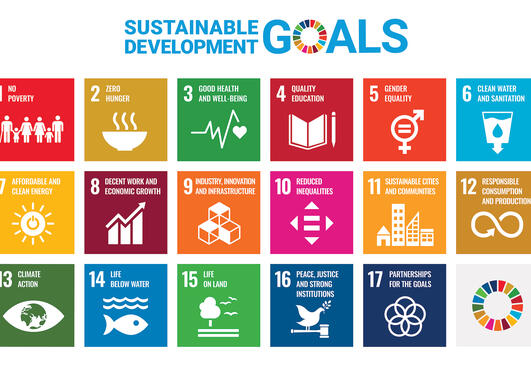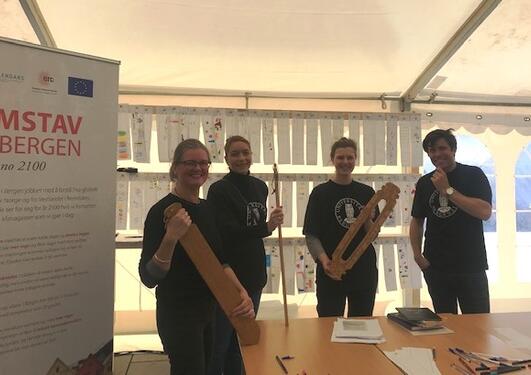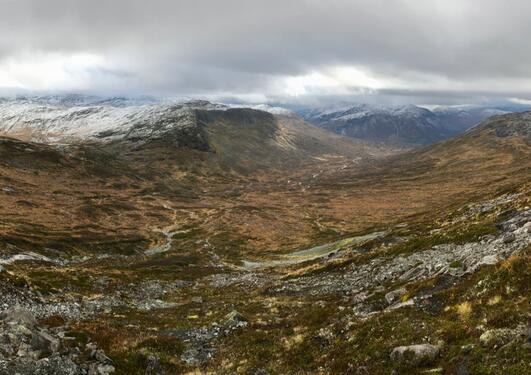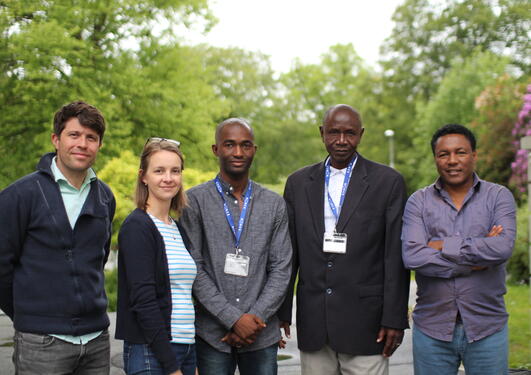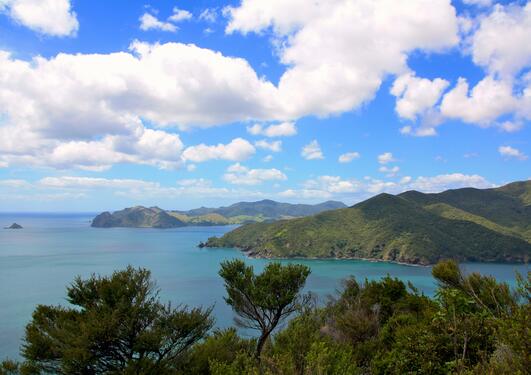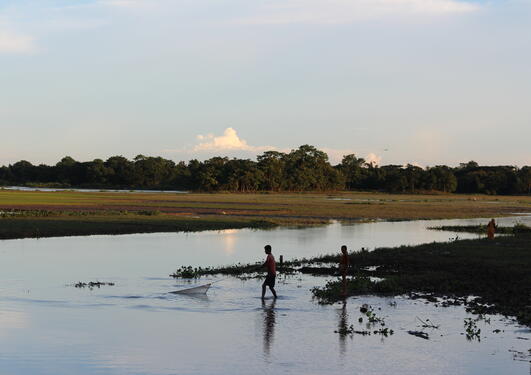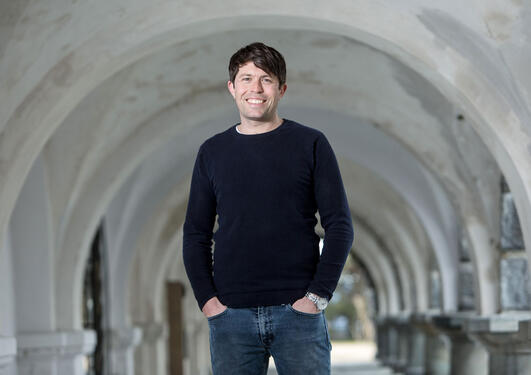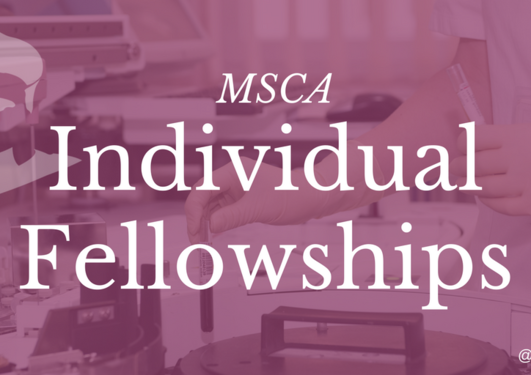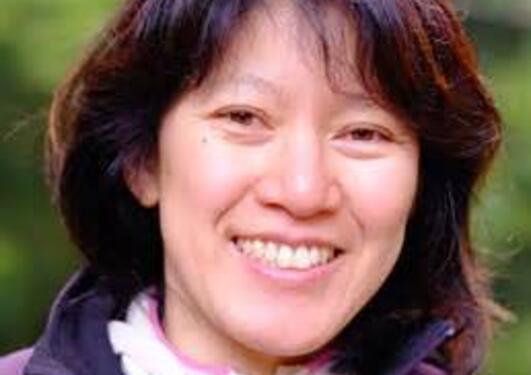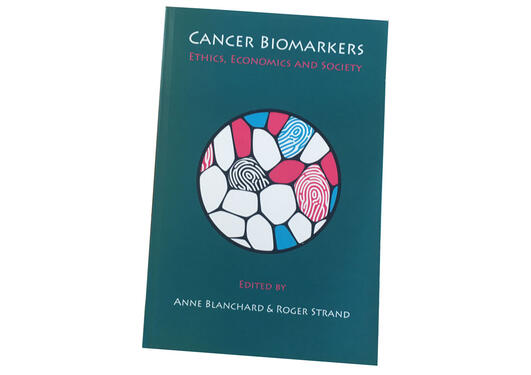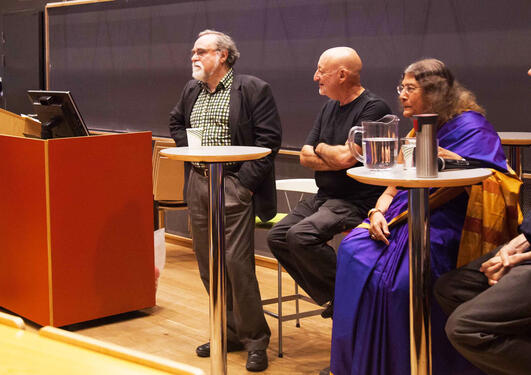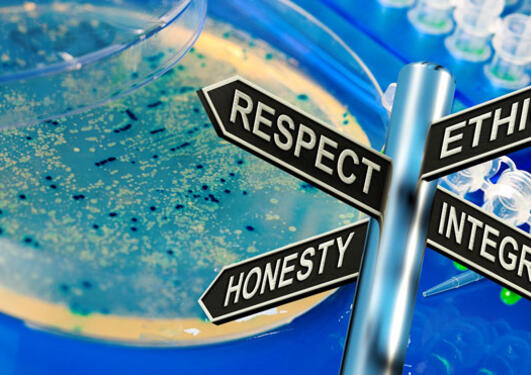News archive for Centre for the Study of the Sciences and the Humanities
New dissemination video from the MAGIC project on what happens when there is uncertainty and the science is not complete.
Thor Olav Iversen's doctoral project seeks to develop a critical framework for assessing food security quantification. We had a quick talk with the PhD candidate.
The CALENDARS team had a stand at the National Science Week expo (Forskningstorget) in Bergen in September.
Erik Kolstad and Scott Bremer organise training in transdisciplinary climate adaptation research for early career researchers.
During their agricultural season, the farmers of Mali highly rely on timely rainfall. A new collaboration project adapts the weather service yr.no for the rainy season in Mali.
The CALENDARS project started on New Years day 2019, and it is off to an energetic start!
Torture of data, perverse reward systems, declining morals and false findings: Science is in crisis, argues statistician Andrea Saltelli.
Bangladesh is one of the most vulnerable countries in the world to climate change. Scientists from UiB have worked together with communities around Sylhet, in northeast Bangladesh, in search of new ways for understanding and adapting to the climate.
How can we live by the rhythms of the seasons, when these rhythms seem to be changing quickly? Scott Bremer is looking at how rapid seasonal changes are affecting institutions in society and how we can re-learn and adapt to seasonal change in new ways.
Thanks to EU funding, the Digital Culture, Archaeology, Philosophy and Theory of Science researchs groups will welcome new international researchers to their team.
These groups at the Faculty of Humanities received five out of seven Marie Curie grants awarded to UiB.
How do we achieve a real dialogue between Science and Society? What are scientists' responsibilities in this regard? These questions were discussed at a Round Table event 26 October 2017 at the "FEBS3+" conference in Barcelona, gathering biochemists and life scientists from France, Portugal and Spain.
Dr. Mimi Lam has been named winner of the Society for Conservation Biology’s inaugural Conservation Beacon Award.
The ethics, economics and ELSA research groups of CCBIO are coordinating their research activities ever more. In April they published their first joint book volume "Cancer Biomarkers: Ethics, Economics and Society".
Caroline Engen is a CCBIO PhD candidate who presented at the S.Net conference in Bergen. Her lecture was titled "Why Targeted Therapy May Not Work", and was part of the CCBIO session "The Transition from a Blockbuster Model to Personalised Cancer Therapy". We asked Caroline to walk us through a medical researcher's perspective of the conference and the use of new technologies.
14-15 January 2016, Roger Strand (SVT and CCBIO) took part in two events organized by the Initiative for the Humanistic Study of Innovation at Indiana University in Bloomington, US.
The Council of Europe, with its 47 member states, has for years been involved in international efforts for human rights and bioethics. In particular, it is known for the so-called Oviedo Convention that outlines ethical principles for biomedicine.
Zora Kovacic is a visiting PhD fellow from Universitat Autònoma de Barcelona who will stay three months at the SVT.
Pages
- « first
- ‹ previous
- 1
- 2
- 3
- 4
- November 2025 (1)
- July 2025 (1)
- June 2025 (1)
- January 2025 (2)
- November 2024 (1)
- September 2024 (1)
- February 2024 (1)
- October 2023 (1)
- September 2023 (1)
- April 2023 (1)
- March 2023 (1)
- January 2023 (2)
- October 2022 (1)
- August 2022 (1)
- May 2022 (1)
- April 2022 (2)
- February 2022 (3)
- January 2022 (1)
- December 2021 (1)
- November 2021 (2)
- October 2021 (1)
- September 2021 (2)
- August 2021 (2)
- June 2021 (1)
- May 2021 (3)
- April 2021 (1)
- March 2021 (3)
- January 2021 (1)
- December 2020 (1)
- November 2020 (2)
- October 2020 (2)
- September 2020 (3)
- July 2020 (2)
- June 2020 (2)
- April 2020 (1)
- February 2020 (1)
- November 2019 (1)
- October 2019 (3)
- June 2019 (1)
- May 2019 (1)
- October 2018 (1)
- June 2018 (1)
- April 2018 (1)
- February 2018 (1)
- November 2017 (1)
- June 2017 (1)
- May 2017 (1)
- October 2016 (1)
- January 2016 (1)
- April 2015 (1)
- September 2014 (1)

